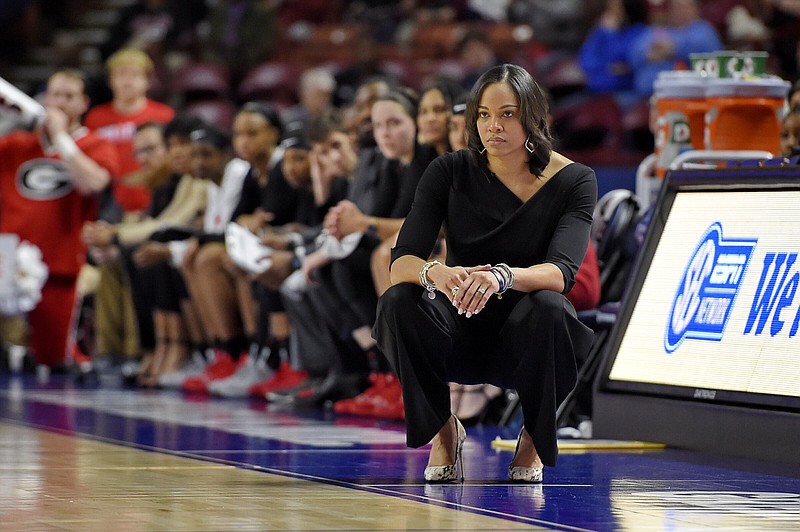Historical Overview: Us Women’s Basketball Coach

The history of US women’s basketball coaching is a journey marked by pioneering figures, evolving coaching philosophies, and the relentless pursuit of excellence. From the early days of the sport’s development to the present era of professional leagues and global recognition, women’s basketball coaching has played a pivotal role in shaping the sport’s trajectory.
Notable Coaches and Their Impact, Us women’s basketball coach
This section explores the contributions of prominent US women’s basketball coaches, highlighting their impact on the sport’s development and evolution.
- Senda Berenson Abbott (1868-1954): Widely regarded as the “Mother of Women’s Basketball,” Berenson Abbott introduced the game to women at Smith College in 1892. Her pioneering efforts laid the foundation for the growth of women’s basketball in the United States. She authored the first rulebook for women’s basketball, emphasizing safety and fair play, and her contributions were instrumental in establishing the sport as a legitimate athletic activity for women.
- Margaret “Peggy” Russell (1905-1991): A highly influential coach and advocate for women’s basketball, Russell served as the first president of the Women’s Basketball Coaches Association (WBCA) and was instrumental in establishing the organization’s national tournament in 1982. Her commitment to promoting the sport and advocating for women athletes earned her recognition as a pioneer in women’s basketball.
- Pat Summitt (1952-2016): An iconic figure in women’s basketball, Summitt’s coaching career at the University of Tennessee spanned 38 seasons, during which she amassed an unparalleled record of 1,098 wins, eight national championships, and 16 SEC titles. Her coaching philosophy emphasized hard work, discipline, and a relentless pursuit of excellence, and her impact on the sport extends beyond her impressive win total. She was a role model for countless female athletes and coaches, inspiring them to strive for greatness both on and off the court.
- Geno Auriemma (1954-present): The head coach of the University of Connecticut women’s basketball team since 1985, Auriemma has led the Huskies to 11 national championships, a remarkable feat that has cemented his place among the sport’s most successful coaches. His coaching style is characterized by an aggressive, fast-paced offense and a relentless pursuit of perfection. He has also been instrumental in developing a pipeline of talent from the high school level to the WNBA, further contributing to the sport’s growth and popularity.
Evolution of Coaching Strategies and Philosophies
This section explores the evolution of coaching strategies and philosophies in US women’s basketball, from the early days of the sport to the present era of professional leagues and global recognition.
- Early Days: In the early days of women’s basketball, coaching strategies were largely focused on basic fundamentals and team play. The emphasis was on teaching players the rules of the game, developing their skills, and fostering teamwork.
- Rise of Specialization: As the sport evolved, coaching strategies became more specialized, with coaches focusing on specific areas such as offense, defense, or player development. The development of specialized drills and training methods further enhanced player performance and team success.
- Emphasis on Skill Development: With the advent of professional leagues like the WNBA, coaching strategies shifted towards emphasizing individual skill development and athleticism. Coaches began to focus on training players to be more versatile and adaptable, capable of performing at a high level in a variety of situations.
- Data-Driven Approach: In recent years, the use of data analytics has become increasingly prevalent in women’s basketball coaching. Coaches now rely on advanced statistics and performance tracking tools to gain insights into player performance, team dynamics, and opponent tendencies. This data-driven approach allows coaches to make more informed decisions and optimize player development.
Comparing and Contrasting Coaching Styles
This section compares and contrasts the coaching styles of prominent figures in the sport’s history, highlighting their unique approaches to leadership, player development, and game strategy.
- Pat Summitt and Geno Auriemma: Summitt’s coaching style was characterized by a strong emphasis on discipline, hard work, and a commitment to team unity. Auriemma, on the other hand, is known for his aggressive, fast-paced offense and his relentless pursuit of perfection. Both coaches have achieved unparalleled success in the sport, but their distinct approaches to leadership and game strategy have shaped their respective legacies.
- Tara VanDerveer and Kim Mulkey: VanDerveer’s coaching style is marked by a focus on player development and a commitment to creating a positive and supportive team environment. Mulkey, known for her fiery personality and demanding style, emphasizes hard work, toughness, and a relentless pursuit of winning. Both coaches have achieved significant success in the sport, demonstrating that different coaching styles can lead to victory.
US women’s basketball coaches are always on the lookout for talented players, and one name that consistently comes up is Kahleah Copper. Her relentless drive and exceptional scoring ability have made her a force to be reckoned with in the WNBA, and her journey to becoming a champion is an inspiration to aspiring players everywhere.
Coaches recognize that her dedication and talent could be a valuable asset to any team.
The US women’s basketball coach has a tough job, leading a team of world-class athletes. They need to be able to inspire and motivate players like Napheesa Collier , a star who embodies both skill and determination. Collier’s drive and commitment are a testament to the dedication needed to excel in this demanding sport, making her a role model for aspiring players and a valuable asset to any team.